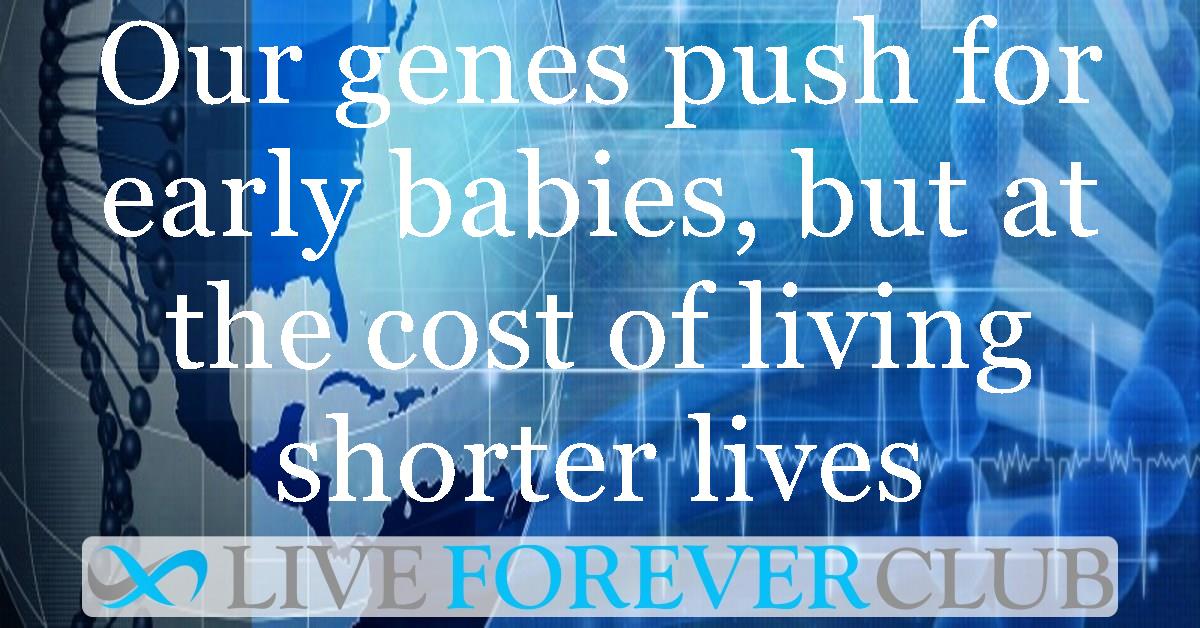Key points from article :
A University of Michigan study provides strong evidence for a decades-old theory that genes promoting early reproduction shorten lifespan in humans.
This "trade-off" is explained by "antagonistic pleiotropy," where a single gene has both positive and negative effects.
Researchers analysed genetic and health data from over 276,000 people in the UK Biobank.
They found a negative correlation between genes linked to reproduction and genes linked to lifespan. In simpler terms, genes boosting reproduction tend to shorten lifespan.
Individuals with genes for higher reproduction rates were less likely to reach age 76 compared to those with genes for lower rates.
Interestingly, having exactly two children was statistically linked to the longest lifespan in this study.
The study supports the theory that natural selection favors genes promoting early and frequent reproduction, even if they lead to shorter lifespans.
This is because fitness, defined as offspring production, is largely determined before reproductive age ends.





